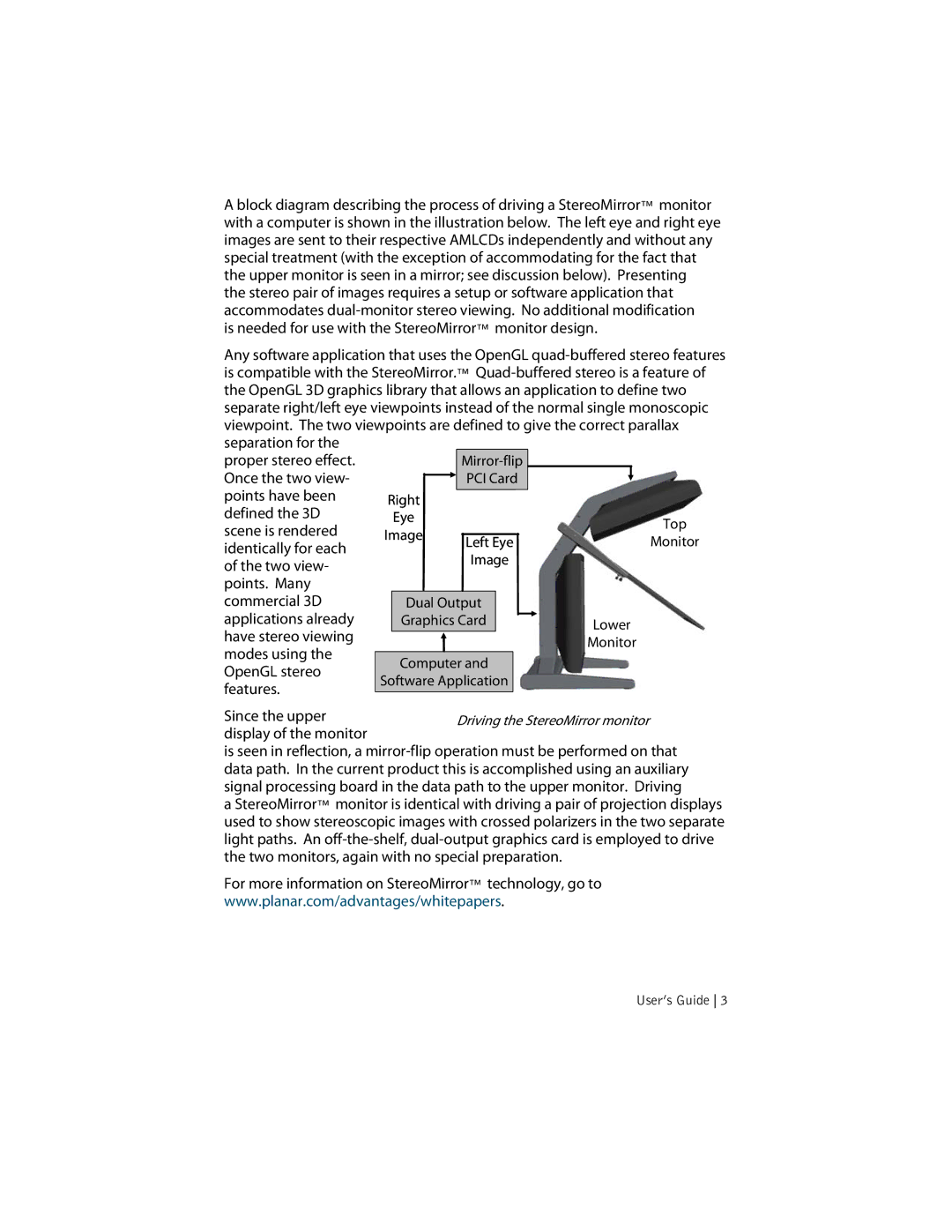
A block diagram describing the process of driving a StereoMirror™ monitor with a computer is shown in the illustration below. The left eye and right eye images are sent to their respective AMLCDs independently and without any special treatment (with the exception of accommodating for the fact that the upper monitor is seen in a mirror; see discussion below). Presenting the stereo pair of images requires a setup or software application that accommodates
is needed for use with the StereoMirror™ monitor design.
Any software application that uses the OpenGL
proper stereo effect. |
|
|
|
| |||
Once the two view- |
|
| PCI Card |
|
| ||
points have been | Right |
|
|
|
|
| |
defined the 3D |
| Eye |
|
|
|
| Top |
scene is rendered | Image |
|
|
|
| ||
Left Eye |
| Monitor | |||||
identically for each |
|
|
| ||||
|
| Image |
|
| |||
of the two view- |
|
|
|
| |||
|
|
|
|
|
|
| |
points. Many |
|
|
|
|
|
|
|
commercial 3D |
| Dual Output |
|
|
|
| |
applications already |
| Graphics Card |
|
| Lower |
| |
have stereo viewing |
|
|
|
|
| Monitor |
|
modes using the |
|
|
|
|
|
| |
| Computer and |
|
|
| |||
OpenGL stereo |
|
|
|
| |||
Software Application |
|
|
| ||||
features. |
|
|
| ||||
|
|
|
|
|
|
| |
Since the upper |
|
| Driving the StereoMirror monitor |
| |||
display of the monitor |
|
|
|
|
|
|
|
is seen in reflection, a
a StereoMirror™ monitor is identical with driving a pair of projection displays used to show stereoscopic images with crossed polarizers in the two separate light paths. An
For more information on StereoMirror™ technology, go to
www.planar.com/advantages/whitepapers.
User’s Guide 3
